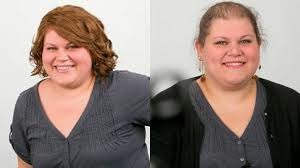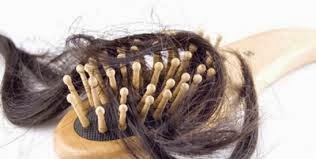Pregnancy is the stage that transforms a woman into a mother. During pregnancy, different changes occur and it could either be physical or mental. Pregnancy is like a burden placed on a woman, and when it is to be disposed of, it is always very painful, and few women are not successful in that area. Hair loss after pregnancy is one of the physical changes that occur in a woman, and it occurs in about 80% of the population of women in the world after childbirth.
Sometimes, the hair breaks so much that it becomes so unbearable for the bearer, and this may make such a person take the decision of scraping everything off and letting it grow again. There are so many reasons for hair loss during pregnancy, and they are listed below for your understanding.
1. The normal rate at which a woman loses her hair daily is around 25-90, and it can be either while brushing or washing, but a pregnant woman loses the little amount of hair than that of a normal woman either due to changes in the hormonal activities that occur in the body during pregnancy.
2. In a woman who has not undergone the pregnancy stage, the hair is always at rest at every period. This stage is called telogen which is the resting phase of the hair follicle. When the hair falls off, the remaining hair continues to grow, which is called the anagen phase and later passes through another phase called the transitional stage or the catagen phase. This phase is when the hair is developing from the anagen phase to the telogen phase.
3. During pregnancy, the level of hormones which are estrogen and progesterone increases and this prevents the hair from falling. Once the baby is delivered, the scalp becomes thick, and this makes the hair breaks easily, and the body's chemical change and the hormonal level becomes normal, and this makes the hair go back to its resting stage, and fall off. Though it is observed that the hair falls in excess, it will not cause visible baldness and new hair will grow after that, which can take a long while; possibly, a year.
4. Also, stress and nutrients that are lost during breastfeeding can also cause hair loss.
So, these are the reasons for hair loss after pregnancy, and I encourage you not to be affrighted or panicky when you notice your hair fall off after pregnancy.
You can quickly and easily learn about hair loss after
pregnancy by going to a website that contains several hair loss and growth tips including a FREE ebook that answers 5 MOST asked questions/problems about hair loss and how to overcome by visiting: http://www.hairgrowthtipshq.com
pregnancy by going to a website that contains several hair loss and growth tips including a FREE ebook that answers 5 MOST asked questions/problems about hair loss and how to overcome by visiting: http://www.hairgrowthtipshq.com
Article Source: http://EzineArticles.com/?expert=Angel_E._Murray_









.jpg)


.jpg)





.jpg)








